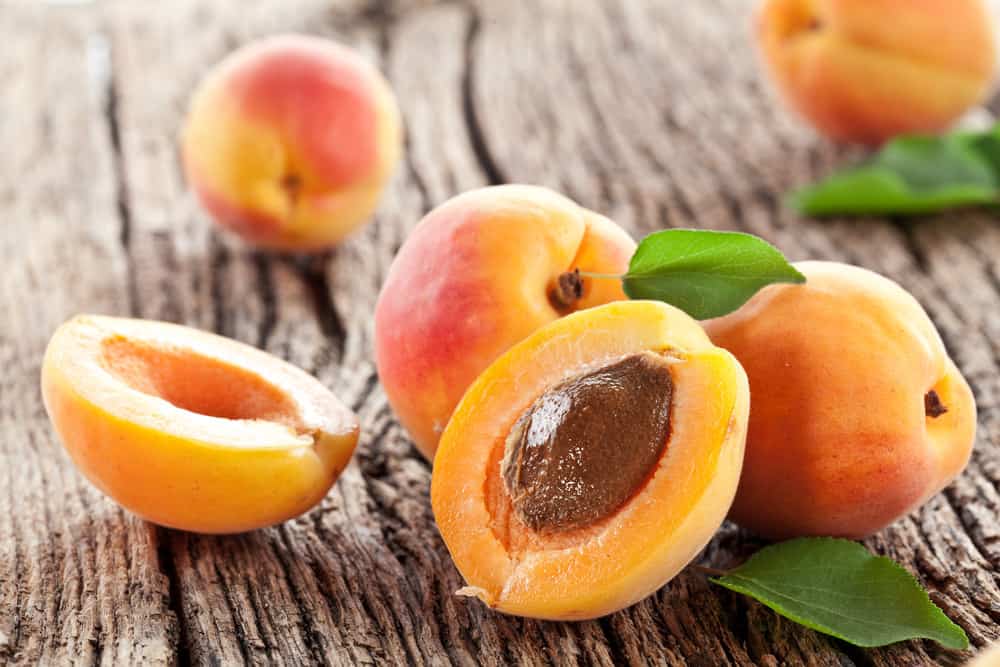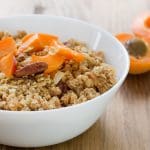Apricot Facts:

Nutrition Facts
Serving Size 1 Fruit
Servings Per Container 1
Amount Per Serving
Calories 17
Calories from Fat 0
% Daily Value*
Total Fat 0g
0%
Saturated Fat 0g
0%
Trans Fat 0g
Cholesterol 0mg
0%
Sodium 0mg
0%
Total Carbohydrate 4g
1%
Dietary Fiber 1g
4%
Sugars 3g
Protein 0g
Vitamin A
13%
Vitamin C
6%
Calcium
0%
Iron
1%
Vitamin E
2%
Vitamin K
1%
Thiamin
1%
Riboflavin
1%
Niacin
1%
Vitamin B6
1%
Folate
1%
Pantothenic Acid
1%
Magnesium
1%
Phosphorus
1%
Potassium
3%
Copper
1%
Manganese
1%
*Percent Daily Values are based on a 2,000 calorie diet. Your daily values may be higher or lower depending on your calorie needs.
PQ (Protein Quality) x PDCAAS (Protein Digestibility Corrected Amino Acid Score) - 20
Additional Contents
- lutein
- catechin
- flavonols
- quercetin
- flavonoids
- zeaxanthin
- ferulic acid
- carotenoids
- phytosterols
- beta-carotene
- alpha-carotene
- proanthocyanidins
- beta-cryptoxanthin
Potential Health Benefits
- eyesight protection
- anti-inflammatory
- lower "bad" cholesterol
- lower Alzheimer's & memory loss risk
- anti-cancer properties
Potential Athletic Benefits
- Fight against post-workout illness vulnerability.
- Detoxify the blood.
- Oxidative stress scavenger for high volume aerobic exercise.
Glycemic Index Rank
34 out of 100
| Rank | Value |
|---|---|
| Low Glycemic | less than 55 |
Food Sensitivity Rank
0.4 to 1 ratio
| Rank | Value |
|---|---|
| Low for Fructose Sensitivity | less than 1 (fructose to glucose ratio) |
Apricots provide our bodies with powerful eyesight and cardiovascular protection. They lower inflammation and help keep Alzheimer's disease at bay. All of this is because of high amounts of phytochemicals and antioxidants present inside the fruit and skin. Apricots are very beneficial to long term health.

oxidative stress
pertains to a result of free radical formations within the body that are absorbed from our environment. Free radicals, for example oxygen molecules, are molecules that have lost a valence electron making them very unstable. Free radicals create oxidative stress on the body by binding to whatever is available, even healthy areas of cells. This is why antioxidants must be present to combat this.
Sources include: USDA
***All-Body Fitness takes no responsibility for the accuracy of the information provided above. Please contact a medical doctor or a registered dietitian for nutrition advice.




 Fitness
Fitness Nutrition
Nutrition